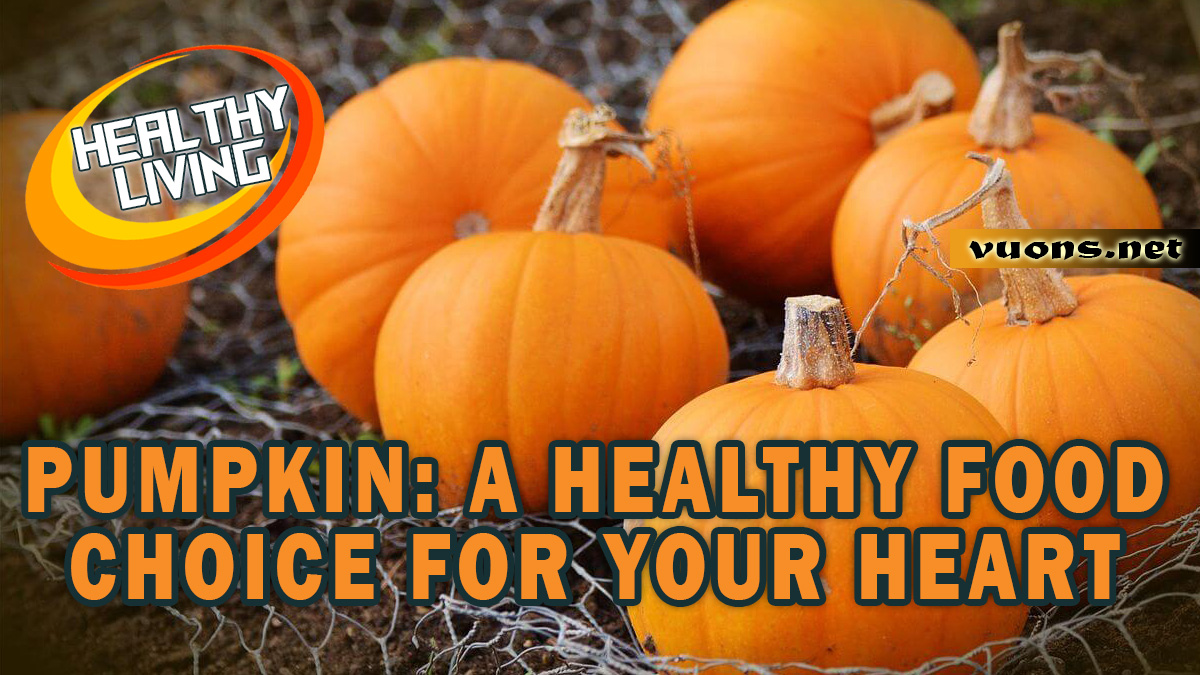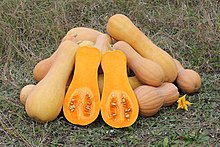PUMPKIN AND HEART HEALTH: AMAZING FACTS
Nutritional Content in Pumpkin that is Beneficial for the Heart
Pumpkin is not only a delicious food, but it is also full of nutrients that support heart health. The nutritional content in pumpkin that is beneficial for the heart includes fiber, vitamins, minerals and antioxidants which all work together to keep the heart healthy.
First, pumpkin is rich in fiber which helps lower blood cholesterol levels. The soluble fiber in pumpkin can bind cholesterol and remove it from the body, thereby preventing plaque buildup in the arteries which can cause heart disease.
Pumpkin also contains potassium, a mineral that plays an important role in regulating blood pressure. Potassium helps balance sodium levels in the body and prevents hypertension, which is a major risk factor for heart disease.
The vitamin C contained in pumpkin also acts as an antioxidant and helps prevent inflammation, which is one of the main causes of heart disease. Apart from that, vitamin C also helps repair and maintain body tissue, including blood vessels.
The magnesium in pumpkin functions to maintain a healthy heart rhythm and prevent arrhythmias. Additionally, magnesium also helps relax blood vessels, which contributes to healthy blood pressure.
By including pumpkin in your daily diet, you can enjoy significant health benefits, especially for your heart. From fiber to vitamins and minerals, the nutritional content in pumpkin that is beneficial for the heart makes it a smart food choice for maintaining cardiovascular health. So, don’t hesitate to add pumpkin to your diet and feel the benefits.
Benefits of Beta-Carotene in Pumpkin for Cardiovascular Health
Pumpkin is a food rich in beta-carotene, a powerful antioxidant that plays an important role in maintaining cardiovascular health. The benefits of beta-carotene in pumpkin for cardiovascular health are very diverse and have a positive impact on the heart and blood vessels.
The beta-carotene in pumpkin is converted by the body into vitamin A, which is important for normal function of the immune system and vision. However, beta-carotene also has direct benefits for heart health. These antioxidants help fight free radicals, unstable molecules that can cause damage to cells and tissues, including arteries and heart muscle.
One of the main benefits of beta-carotene is its ability to reduce inflammation. Chronic inflammation is a major risk factor for heart disease because it can damage artery walls and trigger atherosclerosis, a condition in which plaque builds up in the arteries and obstructs blood flow. By consuming pumpkin which is rich in beta-carotene, you can help reduce inflammation levels in the body and protect your heart from damage.
Additionally, research shows that high beta-carotene intake may be associated with a reduced risk of coronary heart disease. These antioxidants help maintain the elasticity of blood vessels and prevent the oxidation of LDL cholesterol (“bad” cholesterol), which can form plaque on artery walls. Thus, beta-carotene plays a role in keeping arteries clean and blood flow smooth.
The benefits of beta-carotene in pumpkin for cardiovascular health make it an excellent choice to include in your daily diet. Adding pumpkin to your diet not only adds flavor, but also provides important protection for your heart. With so many ways to prepare it, from soup to cake, pumpkin is a delicious way to keep your heart healthy.
Pumpkin: Healthy Food Choices for a Heart Diet
Pumpkin is a superfood that is rich in nutrients and very beneficial for heart health. Integrating pumpkin into your daily diet is a smart move to support cardiovascular health.
Pumpkin is high in fiber, which is very important in maintaining heart health. Fiber helps reduce levels of bad cholesterol (LDL) in the blood by binding to cholesterol and helping the body excrete it. This prevents plaque buildup in the arteries that can lead to heart disease.
The potassium content in pumpkin also plays an important role in a heart-healthy diet. Potassium helps regulate blood pressure by balancing the effects of sodium in the body. Controlled blood pressure is key to reducing the risk of hypertension, which is one of the main risk factors for heart disease.
Pumpkin is rich in beta-carotene, which the body converts into vitamin A. This antioxidant protects the heart by reducing inflammation and preventing the oxidation of LDL cholesterol. Chronic inflammation and cholesterol oxidation are the main causes of atherosclerosis, which can lead to heart attacks and strokes. Therefore, the beta-carotene in pumpkin helps keep the arteries clean and elastic.
Vitamin C in pumpkin also provides protection for the heart. This vitamin acts as an antioxidant that fights free radicals and prevents cell damage. Additionally, vitamin C helps repair tissue and strengthen blood vessels, ensuring good and healthy blood circulation.
With these various nutritional benefits, pumpkin is a healthy food choice for a heart diet. You can add it to various dishes, such as soups, salads, or even smoothies. Including pumpkin in your daily diet is a delicious and effective way to maintain heart health and support an overall healthy lifestyle. So, don’t hesitate to make pumpkin a part of your diet for a healthier heart.
Antioxidants in Pumpkin and Protection Against Heart Disease
The antioxidants in pumpkin, such as beta-carotene, vitamin C, and vitamin E, play an important role in maintaining cardiovascular health.
Beta-carotene, which gives pumpkin its characteristic orange color, is a powerful antioxidant that the body converts into vitamin A. This antioxidant protects cells from damage from free radicals, unstable molecules that can cause inflammation and atherosclerosis, which is the buildup of plaque in the arteries. By consuming pumpkin, you can help prevent the oxidation of LDL cholesterol, which is an important step in preventing heart disease.
Vitamin C in pumpkin also acts as a major antioxidant. This vitamin helps fight free radicals and prevents chronic inflammation, which is one of the main causes of heart disease. In addition, vitamin C supports blood vessel health by helping the production of collagen, a protein important for the structure and strength of blood vessel walls.
Vitamin E, another antioxidant found in pumpkin, helps protect heart cells from oxidative damage. Vitamin E also contributes to immune system function and prevents the formation of blood clots that can cause heart attacks or strokes.
The antioxidant content in pumpkin provides double protection for your heart. They not only prevent cell damage and inflammation, but also support blood vessel health and reduce the risk of cardiovascular complications. By adding pumpkin to your diet, you can enjoy a variety of delicious dishes while providing extra protection for your heart.
Integrating pumpkin into your daily diet, such as soups, salads, or smoothies, is a simple and effective way to take advantage of the antioxidant benefits in pumpkin and protect against heart disease. So, don’t hesitate to make pumpkin an important part of your healthy diet.




